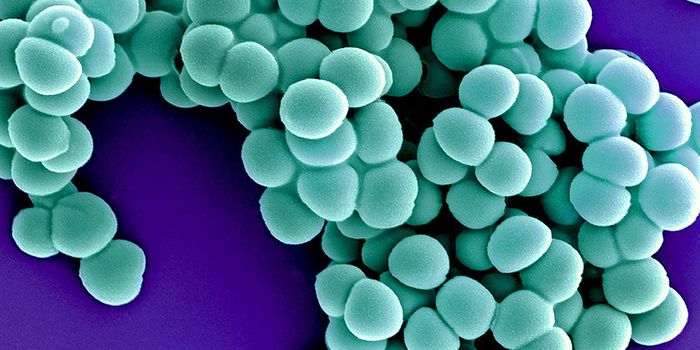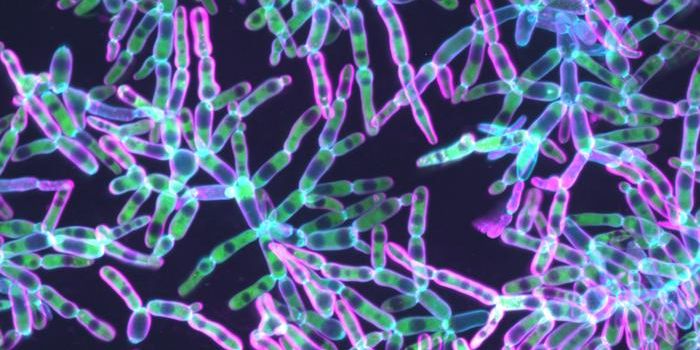A Move to the US Significantly Changes a Person's Microbiome
A move to the United States is extremely disruptive to the microbes in the gut, researchers have found. It’s been established that the gut microbiome exerts a significant influence on our health. Reporting in Cell, investigators at the University of Minnesota and the Somali, Latino, and Hmong Partnership for Health and Wellness assessed the gut microbes of refugees and immigrants from Southeast Asia and determined that their microbiomes quickly took on Western characteristics. This work may also provide insight into the metabolic disorders that are common to individuals eating a Western diet, which often affect immigrants to the United States.
"We found that immigrants begin losing their native microbes almost immediately after arriving in the U.S. and then acquire alien microbes that are more common in European-American people," said the senior author of the study, Dan Knights, a computer scientist and quantitative biologist at the University of Minnesota. "But the new microbes aren't enough to compensate for the loss of the native microbes, so we see a big overall loss of diversity."
Compared to people living in the United States, people in developing nations have far more diversity in their microbiomes and are considered healthier. "But it was striking to see this loss of diversity actually happening in people who were changing countries or migrating from a developing nation to the U.S.," noted Knights.
Minnesota has a large number of immigrants from Southeast Asia that were essential to this study. Members of the community, which included the ethnic minorities the Hmong and Karen people, were involved in the recruitment and educational outreach this study undertook.
"Obesity was a concern that was coming up a lot for the Hmong and Karen communities here. In other studies, the microbiome had been related to obesity, so we wanted to know if there was potentially a relationship in immigrants and make any findings relevant and available to the communities. These are vulnerable populations, so we definitely try to make all of our methods as sensitive to that as possible and make sure that they have a stake in the research," said the first author of the study, Pajau Vangay.
The work included several groups - Hmong and Karen immigrants to the US, Caucasian Americans, and Hmong and Karen people that still live in Thailand. Nineteen people were followed during their move and their first six to nine months in the US.
There were significant changes. In only a few months, a bacterium that is found in Westerners, Bacteroides, began to displace the non-western microbe Prevotella. The longer the immigrants had been in the US, the less microbial diversity was found in their gut microbiome. The food logs kept by the participants suggested that their diets, which were also becoming more Westernized, were having an impact. It doesn’t explain every change, however.
In the children of immigrants, the changes were even bigger. "We don't know for sure why this is happening. It could be that this has to do with actually being born in the USA or growing up in the context of a more typical US diet. But it was clear that the loss of diversity was compounded across generations. And that's something that has been seen in animal models before, but not in humans," said Knights. He is featured in the video below and discusses microbiome research.
The study does not indicate any cause-and-effect relationship. It does highlight the correlation between the westernization of the diet and microbiome with obesity and metabolic disruption.
Knights suggested that this study has a message about health. "When you move to a new country, you pick up a new microbiome. And that's changing not just what species of microbes you have, but also what enzymes they carry, which may affect what kinds of food you can digest and how your diet interacts with your health," he said. "This might not always be a bad thing, but we do see that Westernization of the microbiome is associated with obesity in immigrants, so this could [be] an interesting avenue for future research into treatment of obesity, both in immigrants and potentially in the broader population."
Sources: AAAS/Eurekalert! Via Cell Press, Cell





![Master Lab Weighing: Accuracy, Compliance & Audits [eBook]](https://d3bkbkx82g74b8.cloudfront.net/eyJidWNrZXQiOiJsYWJyb290cy1pbWFnZXMiLCJrZXkiOiJjb250ZW50X2FydGljbGVfcHJvZmlsZV9pbWFnZV85MWRmZmRjMDIwNDBlMWJjMzYwN2ZiYWY2ZjI4ZGMzYzBmZGMwZGMyXzkxOTcucG5nIiwiZWRpdHMiOnsidG9Gb3JtYXQiOiJqcGciLCJyZXNpemUiOnsid2lkdGgiOjcwMCwiaGVpZ2h0IjozNTAsImZpdCI6ImNvdmVyIiwicG9zaXRpb24iOiJjZW50ZXIiLCJiYWNrZ3JvdW5kIjoiI2ZmZiJ9LCJmbGF0dGVuIjp7ImJhY2tncm91bmQiOiIjZmZmIn19fQ==)




